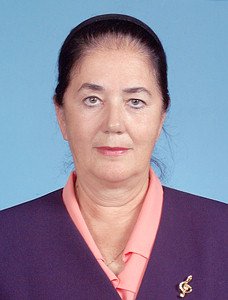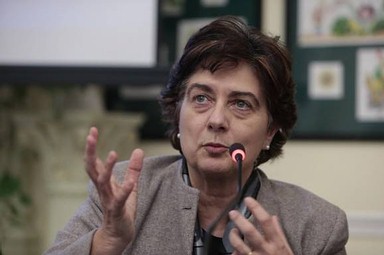MARIJA JUDINA, THE PIANIST THAT MOVED STALIN
Performance dedicated to the life of the Russian pianist Marija Judina through music, texts, and video. Featuring Marina Drozdova(piano), Diana Cahanescu(cello), Victor Derevianko(piano), Yury Fedorishchev(voice) and the actors Angela Demattè and Matteo Bonanni. Costumes: Ilaria Ariemme. Literary Sources: Giovanna Parravicini. Directed by Andrea Chiodi.
Direction: Andrea Chiodi
Dramaturgy: Angela Demattè
Immages: Jakov Nazarov
Literary sources: Giovanna Parravicini
With
Angela Demattè
Matteo Bonanni
And with:
Diana Cahanescu – violoncello
Victor Derevianko – piano
Marina Drozdova – piano
Yury Fedorishchev – bass
“When this woman, with smooth hair framing a face absorbed in thought, climbed onto the stage in a long dark dress, austere, without looking at anyone, immersed in her inner world, sat down at the piano and with a handkerchief wiped her hands and the keyboard and then was still for a prolonged pause, it looked like a rite of preparation for something important, which exceeded the criteria of a purely aesthetic order so that a moral pathos could emerge in the foreground… ” This is how a music critic remembers the concerts of Marija Veniaminovna Judina, a Russian pianist and famous conservatory “professor” which her friends and students (not least of which Marina Drozdova, the main performer of the show-concert) do not hesitate to define as having “a strong character, imperial, and maximalist” and who “loved to be clear and articulate her words well”. At the same time she had an indomitable courage founded on the certainty of her faith in God.
Judina is best known for the famous episode that revolves around her radio performance of Mozart’s 23rd Concerto, which Stalin heard one evening and insisted that she record it in person for a fee of 20,000 roubles. To this generous offer, the pianist replied, “Thank you for your help, Iosif Vissarionovich. I will pray for you day and night and ask God to forgive your grievous sins against the people and the nation. God is merciful and will forgive you. I shall donate the money for the restoration of the church which I attend.” What made this woman capable of such renditions that transcended an ideological barrier that would have certainly taken her to the gulag? In other words, why did the regime, despite frequent dismissals from her academic post and prohibition to play, never effected a permanent persecution? There was something in Marija which emerged as universal. Certainly this was a woman with an inner force not usually found in the routine of her profession nor those of poetry, music, philosophy …
The show-concert tells the story of the thoughts and works of this extraordinary pianist, addressing the challenge of coexistence between music and theatre, in order to show that unity between art and the person which was typical of Marija and which today would also be needed by us.
Andrea Chiodi
Director, in 2000 he undertook a study of Dante’s Divine Comedy, under the guidance of Piera Degli Esposti, which give rise to the show Da che verso prender la commedia / How to interpret comedy. He has specialised in the direction of sacred plays in outdoors settings and unconventional places, working with the Pontifical Commission for Cultural Heritage, for which he wrote and directed the show Siate miei testimoni / Be my witnesses at the catacombs of San Callisto in Rome. He works for the Istituto nazionale di drammaturgia sacra di Orvieto, for which he has conducted a show dedicated to the Miracle of the corporal. He has been assistant to Gabriele Lavia for Shakespeares’s Measure for Measure. Among his last directorships: Mela / Apple by Dacia Maraini, La Bottega dell’Orefice / The Jeweller’s Shop by K. Wojtyla, William Shakespeare’s Midsummersnight dream, Stabat Mater by Tiziano Scarpa. For Rai Uno he has directed Voci e immagini della Costituzione / Voices and images of the Constitution, a celebratory event for the 60th anniversary of the Italian Constitution. He has directed for the Eliseo Theatre in Rome the video Cara beltà with Leo Gullotta, Giuliana Lojodice and Eros Pagni. Since 2010 he is the artistic director of the Season of Sacred Theatre Città di Varese.
Angela Dematté
She was born in Trento and transferred to Milan where she started wor






